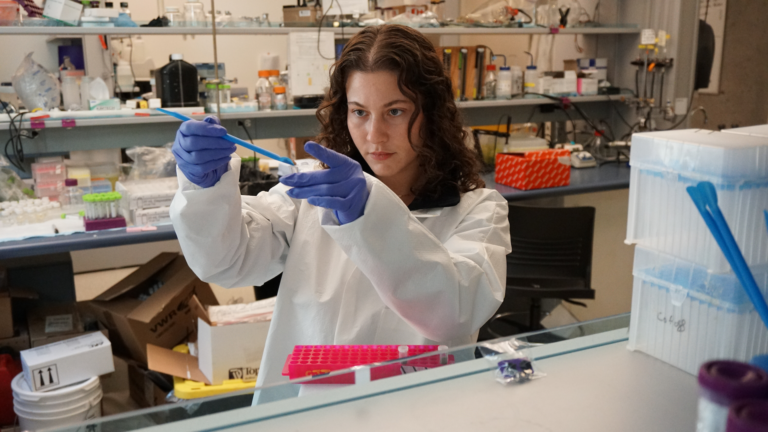Getting back on track after the holidays: Tips from UBC experts
The holidays can leave us feeling drained, stressed or stuck in unhelpful habits. Whether it’s recovering from disrupted sleep, managing stress or finding hope in the face of personal and global challenges, the new year is a good time to reset.
UBC experts share practical tips for building lasting routines and embracing 2025 with purpose.
Dr. John-Tyler Binfet, director of graduate programs in UBC’s faculty of education, developed the School Kindness Scale and offers advice on modelling kindness for children.
How can parents and teachers encourage children to be kind when they return to school?
I encourage parents and teachers to consider “low-cost/high-yield” interactions with children. These are acts that require minimal planning and resources yet contribute to positive shifts in children’s behaviour. Adults can model kindness through acts such as greeting others in passing, using children’s names and establishing eye contact to acknowledge and welcome children. Collectively, such acts both model kindness for children and help create learning contexts where children can thrive.
Dr. Kai Chan, professor at the Institute for Resources, Environment and Sustainability, and Institute for the Oceans and Fisheries, and founder of CoSphere, focuses on ways to improve the management and governance of social-ecological systems.
What simple steps for climate action can folks commit to in 2025?
One climate action that folks can commit to is to let it be known broadly that strong climate action is a non-negotiable for you. If you think it’s ridiculous that rich nations like Canada squabble about our anemic cuts to emissions when low-income nations are struggling to develop their economies under the weight of climate-fueled disasters, say so. Canada can do better, if we demand it.

Dr. Kai Chan, PhD
Professor, Canada Research Chair, Biodiversity & Ecosystem Services, Institute for Resources, Environment and Sustainability, Institute for the Oceans and Fisheries
Interview languages: English
Dr. Wendy Hall, a professor emeritus in the school of nursing, studies sleep and sleep hygiene.
How can people ensure quality sleep as they return to their daily routines?
People can improve their quality of sleep by returning to their regular times for going to bed and getting up in the morning. They can also improve their quality of sleep by avoiding large meals in the evening. Avoiding alcohol consumption or reducing alcohol consumption can also improve the quality of sleep.

Dr. Wendy Hall, RN, PhD
(She/Her/Hers)
Professor Emeritus, School of Nursing
Interview languages: English
Dr. Raymond Lam is a professor in the faculty of medicine who specializes in depression research.
Many people struggle with maintaining mental health routines, especially during the darker winter months. What are some simple, evidence-based strategies to reset and boost mood as we start the New Year?
In these dark winter days we need more light in our lives, at least until spring arrives. But indoor light isn’t bright enough to synchronize our biological clock. We need outdoor light for that. A brisk morning walk outdoors carries double health benefits of bright light and exercise to improve your winter mood, sleep and energy!
UBCO psychology professor Dr. Lesley Lutes develops cognitive and behavioural change programs aimed at improving physical and emotional well-being and happiness.
How can we effectively manage post-holiday stress and replace old bad habits with new, healthier ones?
When a new year begins, many people see it as an opportunity to make changes in their lives – including in areas like exercise, nutrition, weight loss and finances. However, we also need to address mental and behavioural health needs as part of these changes.
For instance, in 2020, the Canadian Medical Association introduced new guidelines for treating individuals living with obesity. These guidelines recommend moving away from standard diet and exercise advice and instead focusing on evidence-based cognitive and behavioural therapies to tackle the root causes of obesity. Treating conditions such as depression, anxiety and trauma is essential to supporting individuals in making sustainable lifestyle changes.
With one in two primary care visits now involving mental and behavioural health concerns, it’s important to consider the whole person and their unique healthcare needs when developing effective treatment plans.

Dr. Lesley Lutes, R. Psych
(She/Her/Hers)
Professor, UBCO Dept. of Psychology
Interview languages: English



